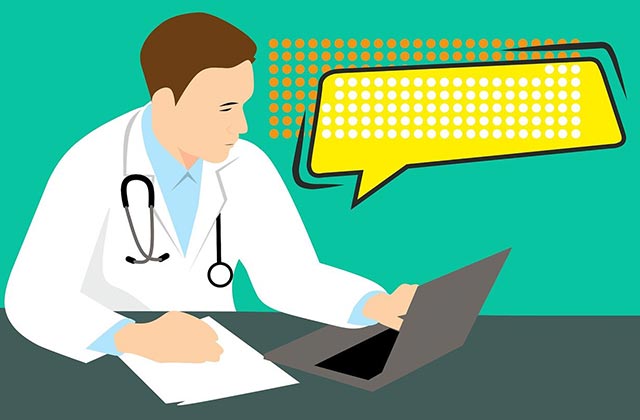After childbirth, most mothers are likely to experience a wide spectrum of emotions. This can oftentimes be overwhelming and cause an emotional rollercoaster ride not just to them, but to their entire family as well. Younger mothers are mostly to be affected by post-partum blues.
So, what is post-partum blues?
Post-partum blues or mostly referred to as the “baby blues” is what most mothers experience after giving birth. These are mostly dealt with by first-time moms, being unable to fully cope with the different emotions they experience after giving birth. These emotions are mostly because of hormonal imbalances caused by childbearing. The feeling of being a first-time mom and having a child to take care of can also become overwhelming in the first few months.
In Canada, 23 % of mothers who recently gave birth express having symptoms that are consistent with post-partum depression and post-partum anxiety disorder. There is also a higher percentage rate of acquiring this disorder when a mother has been clinically diagnosed with clinical depression and/or anxiety before giving birth.
What are the Symptoms of having Post-Partum?
The symptoms of postpartum depression and anxiety may vary from person to person. It also ranges from mild to severe. Here are some of the example:
Baby blues Symptoms:
These symptoms can last only for a few days to a week or two.
- Crying
- Sadness
- Irritability
- Appetite problems
- Having trouble sleeping
- Having overwhelming feelings and emotions
- Mood swings
- Anxiety
- Reduced concentration
Symptoms of Post-partum Depression
If you are not careful You might consider baby blues to be the same as postpartum depression, but postpartum depression lasts longer. With PPD, you can also feel it difficult to care for a newborn or toddler. This disorder can interfere with your daily tasks that are needed to be accomplished for yourself, for your child, and your entire household.
Post-partum depression signs may include:
- Overwhelming fatigue and having loss of energy
- Having a depressed mood and severe mood swings
- Having difficulty taking care of your child and not being able to bond with your baby
- Excessively crying
- Having the urge to separate yourself from family and friends resulting in not wanting to see and be around anyone else
- Losing appetite or eating too much than your usual food intake
- Having insomnia or the inability to sleep, or on the other hand one can be sleeping too much
- Feeling intense irritation and anger
- Feeling worthless, inadequate, guilty and shameful
- Having thoughts of harming yourself and your baby
- Having recurrent suicide thoughts and death
- Fear of not being a good mother
- Not being able to enjoy activities and pleasures in life that you normally do
- Hopelessness
- Not being able to think clearly, concentrate, and make decisions
- Restlessness
- Severe panic attacks and anxiety
These symptoms may last for several months if not diagnosed and left untreated.
8 Ways to Cope with Post-Partum Disorder
1. Build a secure bond with your baby
What keeps the relationship between a parent and a child is having emotional bonding. Being able to bond with your baby will give them a sense of security and will help them in developing fully. Being able to have this bond with your child will help them in their future relationships as they become older and will teach them how to communicate well in life. These bonding moment between a child and their mom will be the foundation of their development.
Some of these bonds can be in a form of picking them up, soothing them, and reassuring them when they cry.
2. Take care of yourself
Taking care of one’s self can reduce the symptoms of post-partum. Taking simple lifestyle changes as well as diet changes can help improve your mood and health. Eat foods that are rich in omega-3, take a nap when the baby is sleeping, find ways in pampering yourself, and go out to get some fresh air and sunlight.
3. Skin-to-skin Contact
Skin to skin contact relaxes both your baby and yourself. Some of the benefits of skin to skin contact may include prolonged periods of sleep, improved weight gain, better brain development, less crying and early hospital discharge.
4. Smile
According to research, the smile of a baby can light up areas of the mother’s brain that produce dopamine. This becomes a “natural high” for the mother.
5. Build a support group
Making social interactions can help mothers in dealing with their symptoms. Having emotional support can help reduce stress.
6. Exercise
Slowly introduce yourself to exercise once again. You can start to do a 5 minutes’ walk and gradually increase it every day.
7. Consult your doctor
Consulting your doctor will help you a lot. They may refer you to try psychotherapy and medication that will be suitable for your case.
If you don’t have clinics near you, you may consult an online doctor in Toronto. As online consultations are easily accessible even without leaving your house.
8. Accept help
Being a first-time mom will be difficult, having a helping hand will lessen your stress and anxiety and give you more rest. May it be from family or friends, take all the help you can get.
Do not forget that postpartum depression is a disorder- it is not a personality flaw. It is a normal condition that comes with giving birth. Click here to get the right treatment will help you manage your symptoms and help your child as well.


